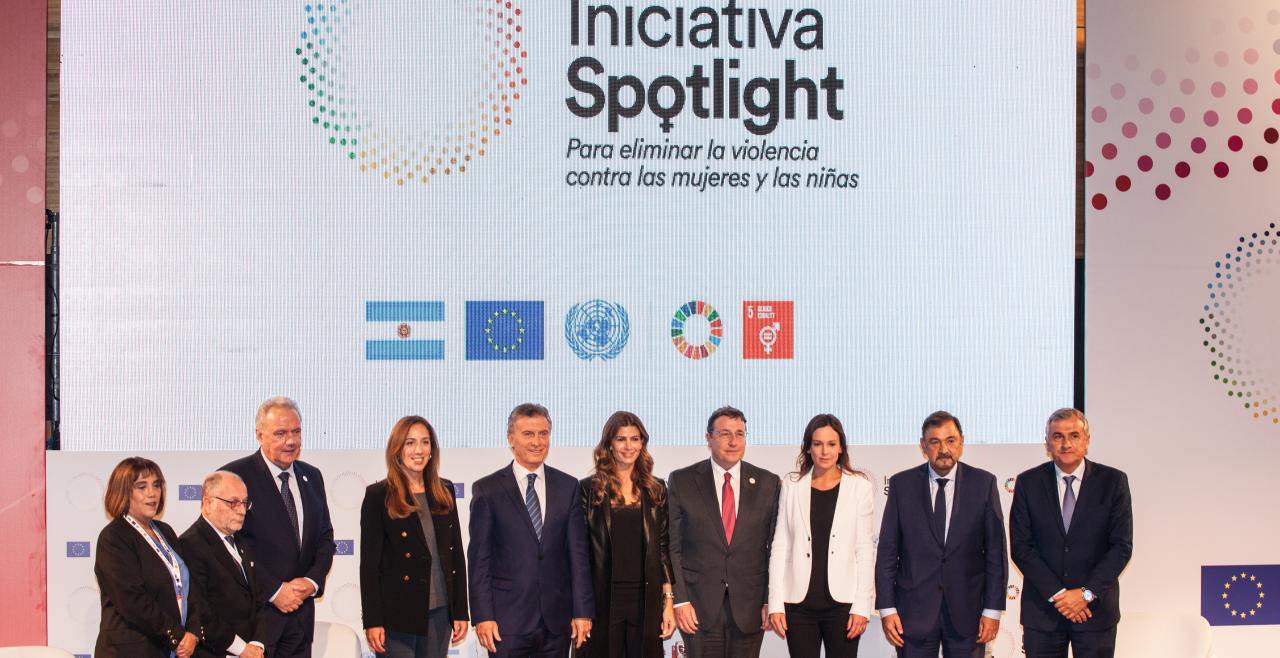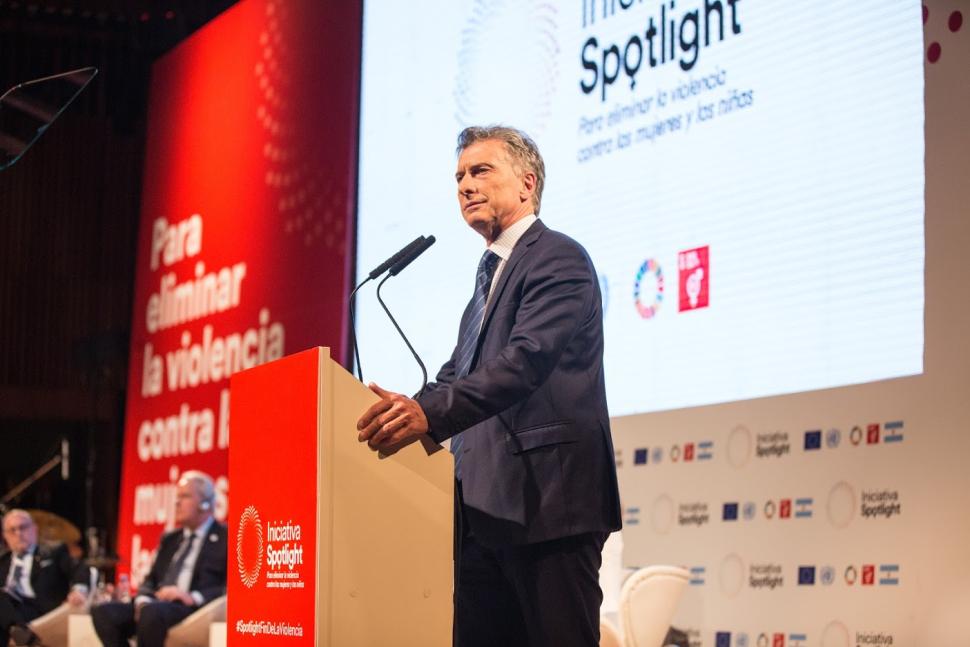The European Union and the United Nations launched the Spotlight Initiative in Argentina

BUENOS AIRES, Argentina - In Argentina, despite advances in prevention, every 32 hours a woman is a victim of femicide. This reality prompted the European Union and the United Nations to respond to the challenges of violence against women and girls, with a focus on ending femicide — when a woman or girls is killed because of her gender.
The Initiative is called 'Spotlight' because it draws attention to violence against women and girls, making the issue central to achieving gender equality and the empowerment of women, in line with the 2030 Agenda for Sustainable Development. Argentina is one of the five countries selected in Latin America along with El Salvador, Guatemala, Honduras and Mexico.
The official launch was held before an audience of more than 500 people at the Kirchner Cultural Center. In attendance was the President of the Republic Mauricio Macri, First Lady Juliana Awada, Minister of Foreign Affairs Jorge Faurie, Minister of Health and Social Development Carolina Stanley, EU Commissioner for International Cooperation and Development Neven Mimica, Ambassador of the European Union in Argentina Aude Maio-Coliche, Administrator of the United Nations Development Programme Achim Steiner and the UN Resident Coordinator Argentina René Mauricio Valdés. The Governor of the Province of Buenos Aires María Eugenia Vidal, the Governor of Jujuy Province Gerardo Morales, the Vice-Governor of Salta Provice Miguel Ángel Isa and the Executive Director of the National Institute of Women (INAM) Fabiana Tuñez were also in attendance at the launch.
"I especially want to thank the European Union and the United Nations system for this decision to bring the Spotlight Initiative to our country, a decision that also represents a recognition of our progress, challenges and commitments to end violence against women." - President Mauricio Macri.
Coordinator of the Program Deaf Without Violence of FUNDASOR (Foundation of Parents and Relatives of Deaf People for their Integration) Mariana Reuter, Coordinator of the Avon Promise to Eradicate Violence against Women and Girls Ana Álvarez, Coordinator of the Gender area of the Juanita Moro Foundation (Jujuy) María José Álvarez and Héctor Marino Suárez, the father of Natalia Rocha a victim of femicide — shared their experiences in a panel discussion moderated by the President of the Foundation for the Study and Research of Women (FEIM) Mabel Bianco.
Spotlight in Argentina
The event was the final step of an inception phase that began more than a year ago. The planning phase brought together national and provincial authorities, civil society organizations, the private sector, trade unions, academia and the women's movement across Argentina to identify the most urgent needs and define decisive actions to address violence against women and girls.
The Initiative will be implemented in two phases. The first phase runs until December 2020 with approximately €5.3 million in funding. The second phase will run until December 2022. The Initiative will be implemented in Salta, Jujuy and the Province of Buenos Aires.
The Initiative will strengthen data collection systems on femicides, improve violence prevention, accompany survivors through accessible care services they can trust, support society civil society in its initiatives to achieve the eradication of violence, strengthen the capacities of institutions and the State for the design and implementation of public policies that respond to violence, develop a legislative framework with specific laws and adjusted to conventions and international standards, and change the attitudes and perceptions that generate violence, among other issues.
Femicides in Argentina
- A woman is a victim of femicide every 32 hours in Argentina.
- In 2017, 274 femicides occurred. If transvesticides / transfemicides (6) and linked femicides (13 women and 15 men) are added, the cases rise to 308.
- The national rate of women victims of femicides of 2017 was 1.31 per 100,000 inhabitants.
- Provinces with rates higher than the national rate per 100,000 inhabitants were: Salta, 3.32; Santiago del Estero, 3.15; Jujuy, 2.92; Formosa, 2.36; Catamarca, 1.98; Córdoba, 1.61; Neuquén, 1.56; Santa Fe, 1.52; Tucumán, 1.45; Chaco, 1.35.
(Source: Undersecretariat of Criminal Statistics of the Ministry of Security of the Nation and the Observatory of Femicides of the Ombudsman of the Nation)

